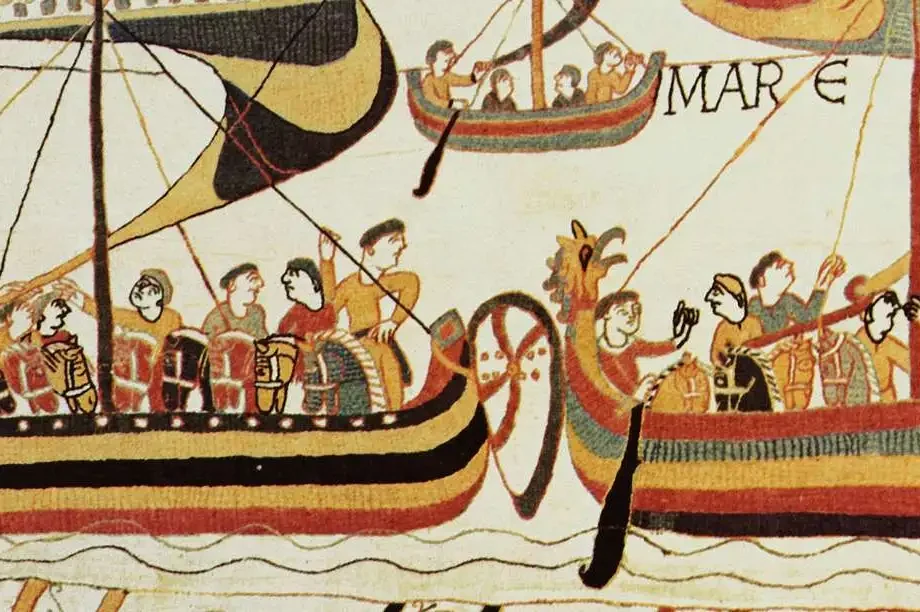French linguist Bernard Cerquiglini would like to send a copy of his new book, "The English language doesn't exist: it's badly pronounced French", to King Charles III.
Rather than aiming to make the monarch sputter into his morning tea, "it's a book written from a humorous perspective, it's deliberately in bad faith, arrogant, chauvinistic and so on," Cerquiglini told AFP.
Beneath the provocative title and humour, the prominent academic hopes to convey the cross-Channel linguistic tangle since the Norman conquest of 1066 -- and how ridiculous French resistance to "anglicisms" can be.
"You can also see my book as an homage to the English language, which has been able to adopt so many words... Viking, Danish, French, it's astonishing," Cerquiglini said.
Norman French's use by the new colonial aristocracy endowed English with words that at first glance might look homegrown, like "cabbage", "lure" or "wage", in the 150 years after William the Conqueror took the throne.
But Cerquiglini is most interested by the 13th and 14th centuries, when French -- by then a second language used in trade, administration and law -- bled freely into English because "a job, fortunes in land or cash, upholding a contract, liberty or even one's life, could depend on mastering" the tongue.
Half of English's borrowings from French took place from 1260-1400, producing words like "bachelor", from the old French word "bachelier", meaning a young noble not yet a knight.
"Travel" is related to the modern French word for labour, "travail", while "clock" stems from the French "cloche", a bell struck to sound the hours before mechanical timepieces were invented.
By the time Shakespeare came to write his plays in the late 16th and early 17th centuries, around "40 percent of the 15,000 words in his works are of French origin", Cerquiglini notes.
Sometimes French alternatives can go too far, he points out, such as in the French-speaking Canadian province of Quebec, where some food stands offer a "chien chaud" -- a very literal translation of "hot dog".
"That doesn't whet my appetite, I have no desire to buy a 'chien chaud', that's for sure," Cerquiglini said.
- 'Not an invasion' -
These days the place of "Anglo-Saxon" words in modern French can stir defensiveness in Paris, often from the Academie Francaise, charged since 1635 with preserving the language in its "pure" form.
"Language in France is official, of the state, national. And so of course we have an academy" whose members enjoy "a ridiculous outfit, a sword, a palace by the Seine" river in Paris, Cerquiglini said.
In recent years the academy has railed against imports related to Covid-19, such as "cluster" or "testing", as well as tech terms like "big data".
Cerquiglini said the academy has scored some worthwhile wins, such as convincing the French-speaking world to use the native-sounding "logiciel" instead of the once-omnipresent "software".
But he added: "This isn't an invasion, these are French words that have gone for training in England and that are coming back to us."
Cerquiglini sees the rich cross-pollination between English and French as an example for La Francophonie, the loose modern association of French-speaking nations.
Madagascar, for example, uses French as a second language in much the same way as England did 800 years ago, he points out.
The situation there or in places like the US state of Louisiana, where French is still spoken by many as a second language, could prove as fertile as the language's sojourn in Britain, Cerquiglini believes.
He also hopes English will survive the trend in recent decades toward a simplified form spoken around the world -- sniffily described as "Globish" by French detractors.
Cerquiglini places high hopes in automatic translation, which could allow local languages to be preserved while enabling free communication.
"I spent 30 years of my career mocking automatic translation... because it was terrible," he said. "Now it's stupefying."


